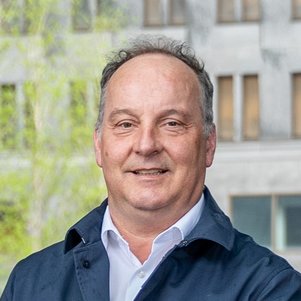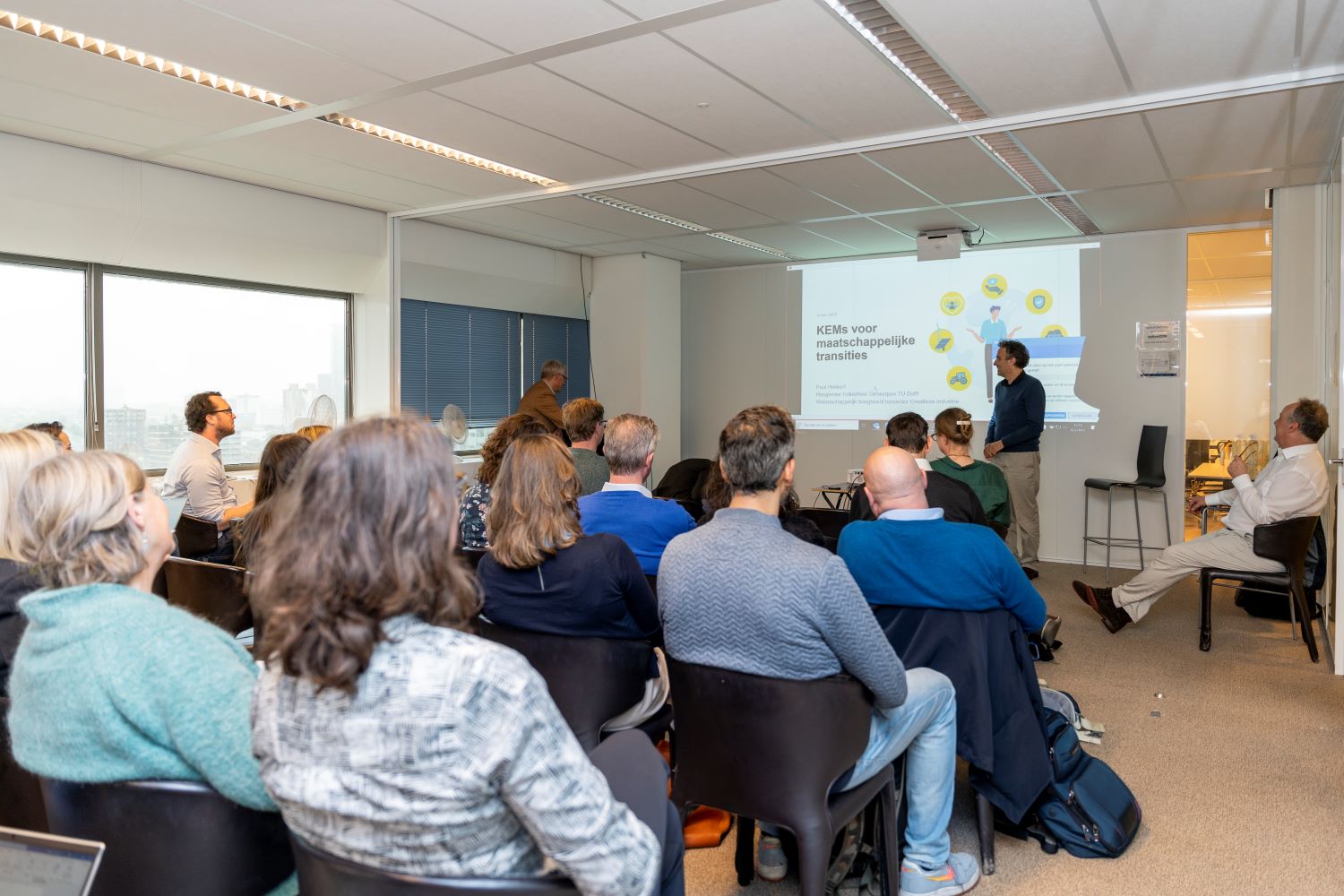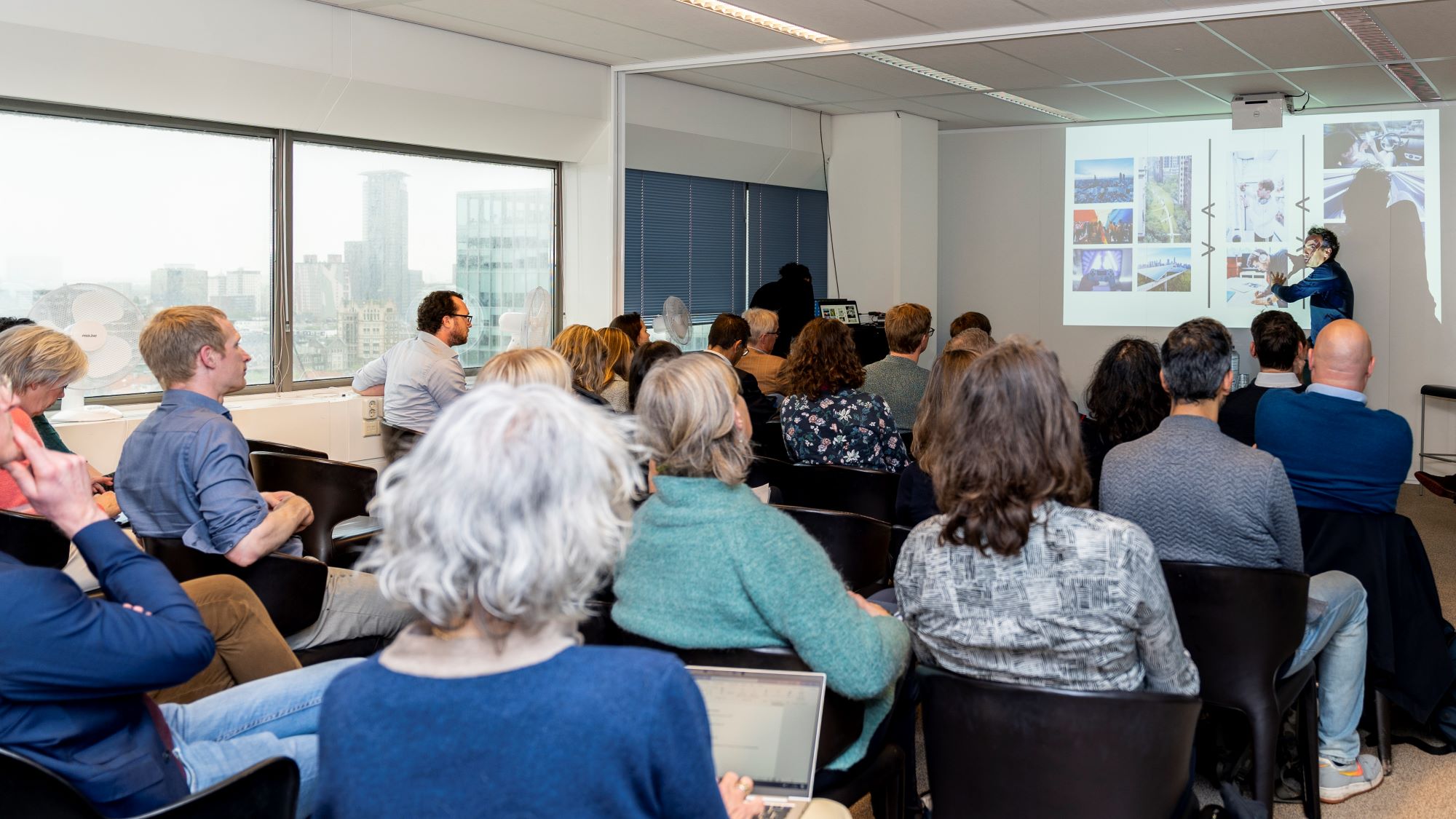A masterclass as a bridge between scientists and policymakers
Every year TU Delft organises several masterclasses for members of staff from the Ministry of Infrastructure and Water Management. The main focus of these masterclasses is on subjects in relation to which the ministry creates policy, ranging from climate adaptation to mobility issues. The aim is to bring scientists and policymakers closer together on these themes. The organiser and chair of the masterclasses, Vincent Marchau, explains what a masterclass like this looks like and why they are so beneficial for both the government and the scientific community.
The masterclasses organised every couple of months by TU Delft, in cooperation with the Ministry of Infrastructure and Water Management, have several goals, such as inspiring policymakers, ensuring that decision-making is based on facts, increasing the focus on current and urgent policy issues and demonstrating the social value of scientific research, explains Vincent Marchau.
Our aim with these masterclasses is to create links between scientists and people from the ministry. The hope is that we can translate the science into policy and vice versa.

Vincent Marchau
The government's demand for knowledge
According to Vincent Marchau, there is a significant demand at the Ministry of Infrastructure and Water Management for knowledge which is relevant to their domain. "In the old days the ministry had a great deal of expertise within its walls. For example, the Directorate-General for Public Works and Water Management employed large numbers of engineers. Those numbers have decreased over the years. So they have to get domain knowledge externally, for example from universities. The problem is that it's sometimes difficult for policymakers to access the science. Conversely, scientists don't always know how they can make their knowledge usable in practice. A masterclass is a first step towards building the required bridge."
The origin of the masterclasses
The idea for the masterclasses came about ten years ago. As Vincent Marchau explains, "The university and the ministry had already set up a partnership shortly before then. One of the benefits was that policymakers were able to come and give guest lectures in Delft, that internships became available at the ministry for final year students and that there was more frequent cooperation on research. The decision was taken to give regular masterclasses to increase the level of knowledge sharing. I was asked to organise these masterclasses because, as a director of TRAIL (see box), I have a broad network in the scientific community. And I'm still doing that today." These days I also act as a moderator during the masterclasses."
A broad range of subjects
Together with his colleague, Ymkje de Boer, Vincent has organised between six and eight masterclasses a year since 2013. Each masterclass focuses on a different theme. "The masterclasses focus on all kinds of issues related to the domain covered by the Ministry, ranging from flood protection and clean aviation to broad prosperity and energy for mobility. We meet once a year to decide on the themes. The ministry puts forward a number of subjects and we then look for two scientists, sometimes from TU Delft, but also from other universities. Of course we don't have expertise in every single field in Delft. So for a subject like road pricing I then, for example, invite a leading economist from the VU to take part."

Lectures by scientists
A masterclass – which usually takes place close to the ministry in The Hague – involves a number of scientists each giving a lecture of around 25 minutes. As Vincent Marchau explains, "During their lecture they tell the audience about their insights regarding the theme and what contribution this could make to policy. For example, how advanced the developments are with regard to hydrogen and the potential of using it in connection with mobility. What happens to those insights is ultimately a question for politicians. So the idea is not for the scientists to use the masterclass to start lecturing the government on everything it's doing wrong, or that choosing one particular policy is more sensible than the other."
Discussion and Q&A
Once the lectures have finished, people from the ministry can respond in detail to the scientists, explains Marchau. "This is followed by a discussion, sometimes on the basis of a number of propositions. To make sure the discussion goes as smoothly as it can, we talk in detail to all the parties involved prior to the masterclass. So that they know what to expect and to ensure a healthy debate. Ultimately you want to bring both parties closer together, rather than placing them in opposition to each other. So the main question is always: What can we learn from each other? Often the masterclasses end with a Q&A session."
Also relevant for others
The masterclasses are not just open to people from the ministry, but also people from related organisations. As Vincent Marchau explains, "These might be the Netherlands Institute for Social Research or the Netherlands Environmental Assessment Agency. Who the masterclasses are of interest to depends on the subject. They can also be extremely useful for students because they help them find out issues which are currently being dealt with in the world of policy, what kind of role they could play as researchers and which organisations they might be able to work for. Every now and again a masterclass will deal with projects that PhD Candidates are involved in."
Ultimately you want to bring both parties closer together, rather than placing them in opposition to each other. So the main question is always: What can we learn from each other? Often the masterclasses end with a Q&A session.
Contributing to the debate
According to Vincent it is difficult to say what the specific outcomes of the masterclasses are. "However you do see certain themes returning in policy reports or recommendations. But, of course, you can't say this is directly down to a particular masterclass. The fact that a certain issue, such as broader access to transport systems, is now higher on the political agenda, is evidence that a debate is going on between science and the government. By organising masterclasses which provide easy access to the ministry and to scientific knowledge, we hope to contribute to that debate."
More constructive than in the past
Vincent has seen a number of pleasing developments over the years. "I've noticed a more equal conversation. The debate between science and policy is more balanced and more constructive and that makes it more pleasant as well. In the past a scientist would sometimes tell his story, a policymaker would respond and that was that. As a scientist I've also learned to adopt a more open approach to policymakers. Being able to take a look behind the scenes at how others do things gives you a better understanding of how processes work and the problems the other person comes up against. This gives you a better insight into how you can tackle issues together."
Slightly different structure
Vincent hopes the masterclasses will continue for many years to come. However, he is thinking of changing the structure. "The idea is to hold more panel discussions. Four scientists and four policymakers would then, for example, be able to tackle a certain subject in more depth. The audience would observe and perhaps join in the debate with questions at a later stage. Something that's changed is that the masterclasses can be attended both physically and digitally. Since the coronavirus crisis hybrid working has become the norm for us as well. Having said that, I still sometimes find it a challenge to work with a physical and digital audience at the same time."
Vincent Marchau is Managing Director of the Dutch Research School for Transport, Infrastructure and Logistics (TRAIL) with over 100 PhD candidates and 50 staff members across 6 Dutch universities.
He also holds a chair on Uncertainty and Adaptivity of Societal Systems at Radboud University in Nijmegen. He received a PhD from TU Delft in 2000 for his research on the Technology Assessment of Automated Vehicle Guidance.

